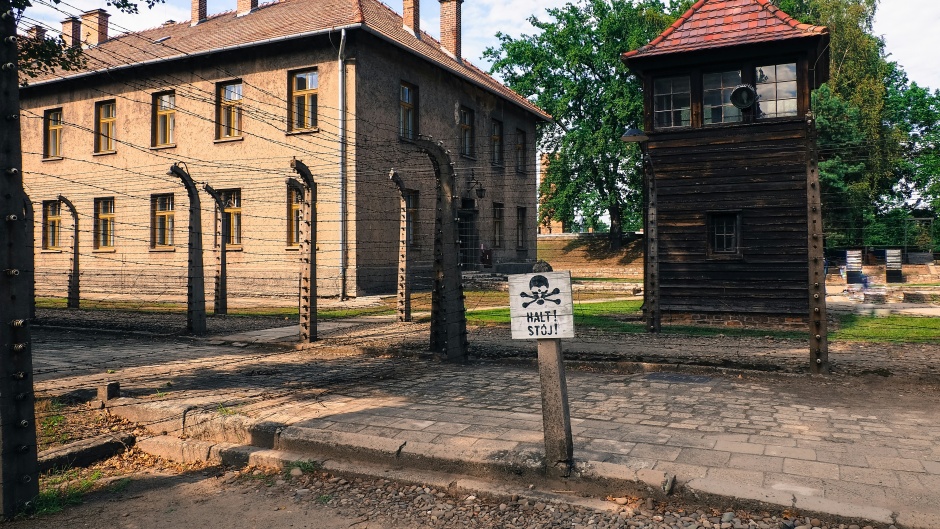The Thirties: The threats identified
The pulpit is not a soapbox; we have something much more important to proclaim. But let us not live in ignorance of what is happening in the world around us.
20 JUNE 2024 · 10:57 CET

In the last post, I noted a few parallels between the 1930s and our times. But what about the threat itself?
The Nazi threat was totalitarian, oppressive, ideological and quasi-religious. Since the fall of the Third Reich, the world has been more focused on Communism, supposedly coming from the opposite end of the political spectrum.
Also, on the expansion of militant religion, and latterly, activist agendas driven and funded by globalist ideologues.
While the media seems to scream “Nazi!” quite freely as an insult, there appears to be an eerie ignorance of where the threat lies for our society today.
What would be the cost in both freedom and lives if we continue to push in the direction of the utopian dreams being touted?
Interestingly, the ideologies swirling in the 1930s seem to come from both ends of the traditional political spectrum as people understand it.
Instead of focusing all our attention on Left versus Right, we should contrast control and freedom...self-proclaimed saviours tend to become tyrants
“Hardly had the republic been established, when the enemies started to attack in earnest. From the left . . . the communists savagely pounded away at the people’s state and its institutions . . . fighting and belittling everything created by the republic. . . . Propelled by the insane belief in a world revolution, the communists caused millions of gold rubles to flow into Germany for the fight against the republic.”It is interesting to read how “time and again [the communists] joined forces with the Nationalists and Nazis in parliament. They cast their vote against democratic government and, together with the Nazis, did immeasurable harm to the dignity of parliament by turning it into a place of political rowdyism and unheard-of brawls.”
Albert C. Grzesinksi (ACG) was not surprised to see communists joining the brown-shirted storm troop army by the thousands, nor “the most radical communist districts . . . becoming strongholds of the National Socialist movement and its sluggers.” (p361)
In another place, he notes how “Some SA formations had as many as thirty per cent communists in their ranks. This was not at all surprising. Both the Nazi SA and the communists had much in common; above all, their hatred of democracy and especially of the social democracy.” (p252)
Wait, we are constantly told that the Nazis and the Communists represent opposite extremes on the political spectrum. Instead of focusing all our attention on Left versus Right, we should instead contrast control and freedom.
Tyranny is tyranny, whatever uniform it wears. And perhaps tyranny is the threat to liberal democracy and human freedom that lingers and re-asserts itself time and again.
Suppose the constitutional rights of the individual are not protected. In that case, any solution offered for any actual or imaginary crisis will prove to be a force of control. In other words, self-proclaimed saviours tend to become tyrants.
ACG finished his 1939 book with a prescient finale:
When the constitutional rights of the individual are not protected, any solution offered for any actual or imaginary crisis will prove to be a force of control
“National Socialism stands for the propagation of a system aimed at the destruction of individualism, the enslaving of other peoples, and barbarism. Civilization gives way to the law of the jungle. Wherever Hitler goes, the four horsemen of the Nazi Apocalypse follow. National Socialism is synonymous with war, devouring uncounted millions of lives, destroying culture and civilization. Hitler consciously or unconsciously is driving toward this goal. He is taking Germany and with her, all Europe and the whole world on the road to disaster.” (p367)We would do well to understand what is meant by the political “left” and “right” but also to grasp that the real battle might be between control and freedom. As preachers, our calling is not to preach a party political message.
The pulpit is not a soapbox; we have something much more important to proclaim. But let us not bury our heads in the sand and live in ignorance of what is happening in the world around us.
In the next post, I want to explore how the great shift happened so quickly and whether that may be helpful for our awareness today.
Peter Mead is mentor at Cor Deo and author of several books. He blogs at Biblical Preaching
Published in: Evangelical Focus - Biblical Preaching - The Thirties: The threats identified
